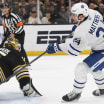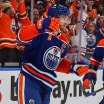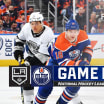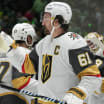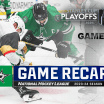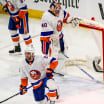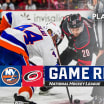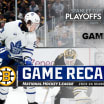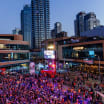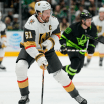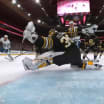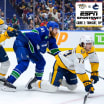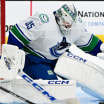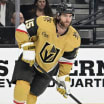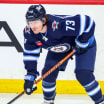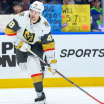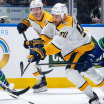PHILADELPHIA -- In the century-plus life of the NHL, the 1930-31 Philadelphia Quakers are practically an asterisk, a dreadful team that played one season and set a standard of ineptitude that stood for four decades and remains the second-worst ever.
Quakers made wrong kind of history in Philadelphia decades before Flyers
Endured brutal season after team moved from Pittsburgh
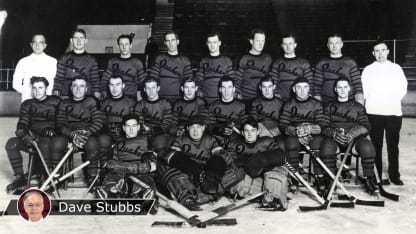
And yet the Quakers, who went 4-36-4, have a place in the hockey lore of their city, no matter that their .136 point percentage is better than only the .131 of the 1974-75 Washington Capitals (8-67-5).
The NHL Board of Governors mercifully pulled the plug on the Quakers and the original Ottawa Senators, who had financial troubles, on Sept. 26, 1931. It was supposed to be a year's suspension of activity - the League waited for the Quakers' finances to be reorganized and/or new ownership to emerge -- but it would be 36 years before the NHL returned to the city in 1967 with the Philadelphia Flyers. (It took 61 years before the Senators were reborn in 1992.)
"Memories of their glorious deeds will live," Toronto Globe columnist M.J. Rodden wrote of the departing Senators, who won the Stanley Cup 11 times from 1903-27.
But of the Quakers, he wrote, "No one will miss those hopeless tail-enders."
Given the intense intrastate rivalry that will be on display when the Philadelphia Flyers play the Pittsburgh Penguins in the 2019 Coors Light Stadium Series at Lincoln Financial Field here on Saturday (8 p.m. ET; NBC, SN360, SN1, TVAS2), it's noteworthy that the Quakers came into being from the failed remains of the Pittsburgh Pirates, who were rebranded as a tribute to the religious community of the Pennsylvania countryside.
The Pirates, who played five seasons, fell victim to the stock market crash of 1929, which hammered Pittsburgh's steel industry. Former lightweight boxing champion and fight promoter Benny Leonard led an ownership group that brought the Pirates, who were 5-36-3 in 1929-30, to Philadelphia.
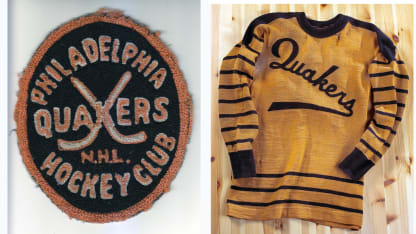
The 1930-31 Philadelphia Quakers sweater, and a team patch (Team photo and patch courtesy of Hockey Hall of Fame; sweater courtesy of Hal Roth/Hockey Hall of Fame)
It wasn't exactly a high-profile entry into the city. Amateur hockey historian Paul Christman, researching the Quakers for a 2008 article for the Society for International Hockey Research, reported that the Philadelphia Inquirer announced the Pirates' move with a three-paragraph brief buried at the bottom of a page with the headline: "Quaker City To Get Big League Hockey." Four days later, when the transfer was made official, the story merited five paragraphs.
If publicity was thin, hopes were high for a team that ultimately proved to be a venture so unsuccessful that the cash-strapped Leonard returned to the boxing ring in August of 1931 for a brief comeback.
J. Cooper Smeaton, the NHL's referee-in-chief, resigned his League position to coach the Quakers. Pirates veterans Harold Darragh, Hib Milks, Tex White and Herb Drury wore Philadelphia's heavy wool sweaters to start, though only Milks endured the entire dismal season. The fresh faces of forward Syd Howe and goaler Wilf Cude came aboard, too.
It wasn't a surprise that the Quakers lost their first game, 3-0 at home to the New York Rangers. Leonard pulled out all the stops to energize fans, dressing his ushers in tuxedos and hanging banners from the rafters.
But the Quakers quickly went downhill. They didn't score a goal until their third game and didn't win for the first time until their sixth game.
To say that 2-1 victory against the Toronto Maple Leafs at Philadelphia Arena was an upset wouldn't begin to tell the story. By then, the Quakers had been outscored 19-5 and were facing a Toronto team that had won its first five games by shutout.
Before the game, Maple Leafs forward Busher Jackson proclaimed, "The only way Smeaton and his gang will keep me from ringing in four goals is to put me in jail."
One reporter wrote that the NHL "was rendered groggy by the thud," and that fans leaving the arena were "dizzy from the excitement."
But the Quakers' momentum took a wrong turn. They lost 15 straight before a 4-3 overtime victory at the Montreal Maroons made them 2-19-1.
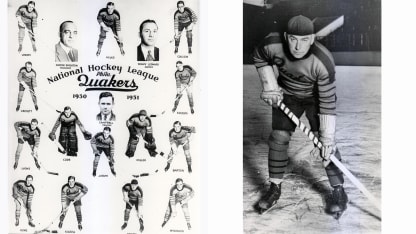
The 1930-31 Philadelphia Quakers, and Quakers forward Herb Drury (Courtesy of Hockey Hall of Fame)
Philadelphia roared into the American Division basement and let no one get close. Their 76 goals tied the New York Americans for fewest in the 10-team NHL. Their 184 goals-against were 42 more than the next-most-porous team, the sad-sack Senators. Philadelphia allowed almost double the average of 97 goals allowed by the rest of the League.
The Quakers' highlight, as it were, was an 8-0 Christmas night drubbing at the hands of the Bruins at Boston Garden. The eight-goal margin, the Quakers' worst of the season, was a footnote to two third-period brawls that sent policemen onto the ice in a bid to restore order.
"Only two constables went over the boards at first and they looked plaintively back for aid as they approached the melee," wrote Charles L. Coleman in Vol. 2 of "The Trail of the Stanley Cup," his seminal hockey encyclopedia. "They eventually were joined by reinforcements and the uprising was quelled."
As LeRoy Atkinson wrote in the Boston Evening Transcript, "The good officers, without skates or [galoshes], were tumbling over the sideboards in all sorts of fantastic attitudes."
Six players, three per side, were fined $15 each. The Bruins paid up promptly, but the Quakers were in no hurry. With a record of 2-20-1 in mid-January, they wrote perhaps even with a straight face to NHL President Frank Calder, "Please take our fines out of our share of the playoffs."
Philadelphia lumbered through the rest of the season, defeating the Detroit Falcons twice: 2-0 on the road Feb. 17 for Cude's first NHL shutout, and 7-5 at home March 12, four games from the end of the schedule.
The Quakers closed up shop at season's end, on life support without playing a game until the team was shut down for good May 7, 1936.
"It was a scrappy team but there wasn't enough talent," Howe said years later.
He would get no argument from the statistics.
Main photo courtesy of Hockey Hall of Fame
